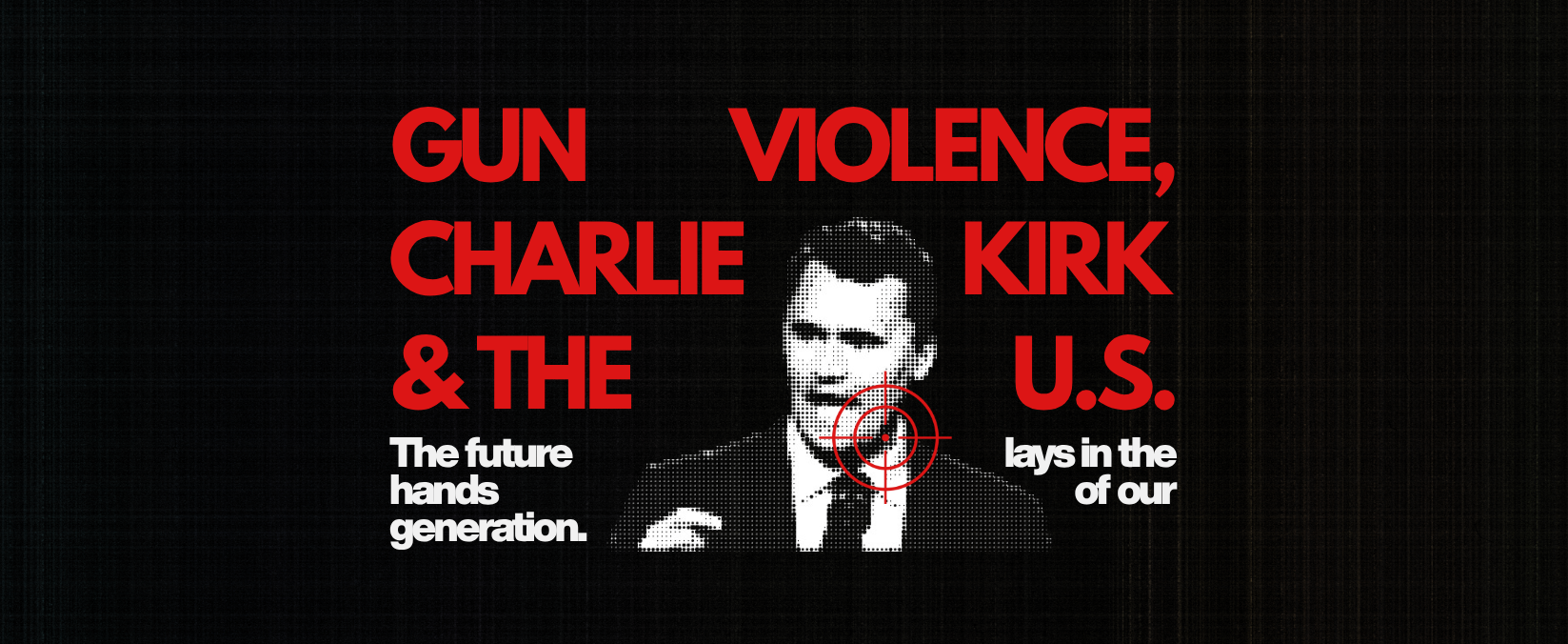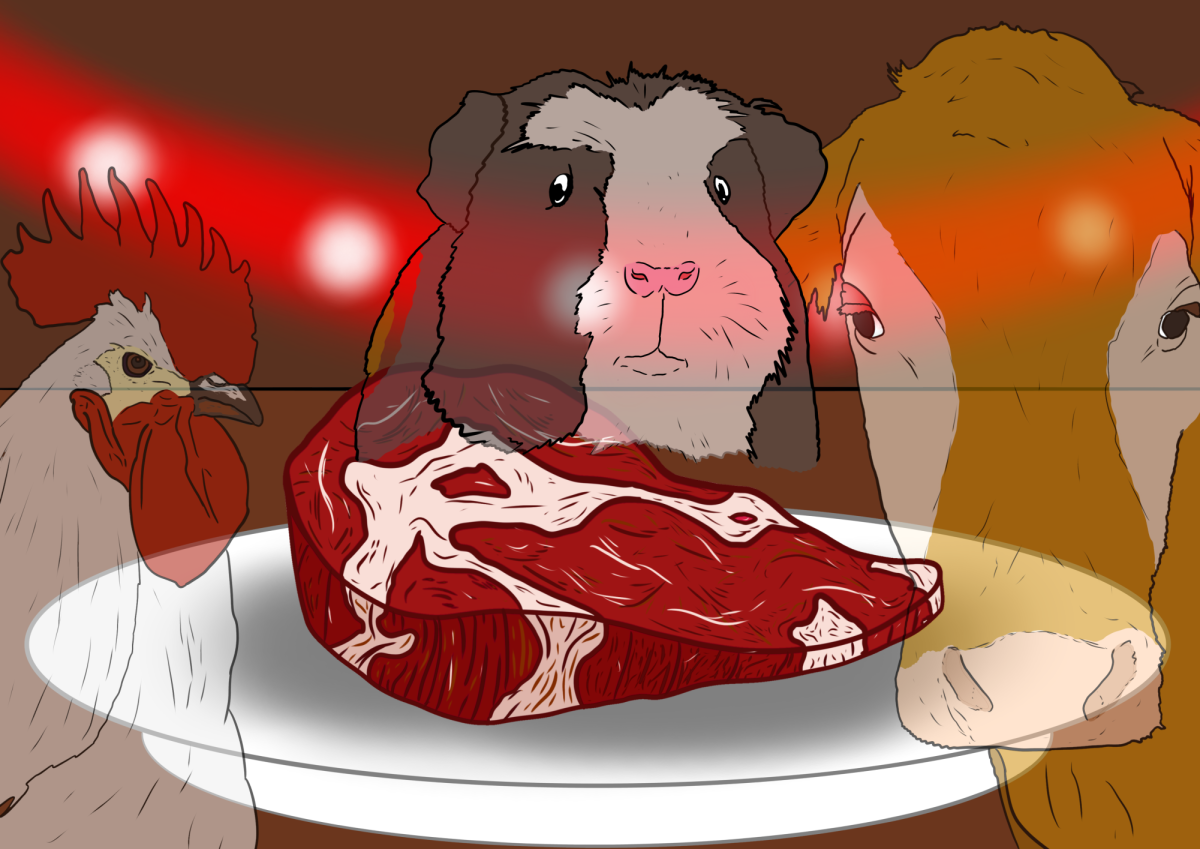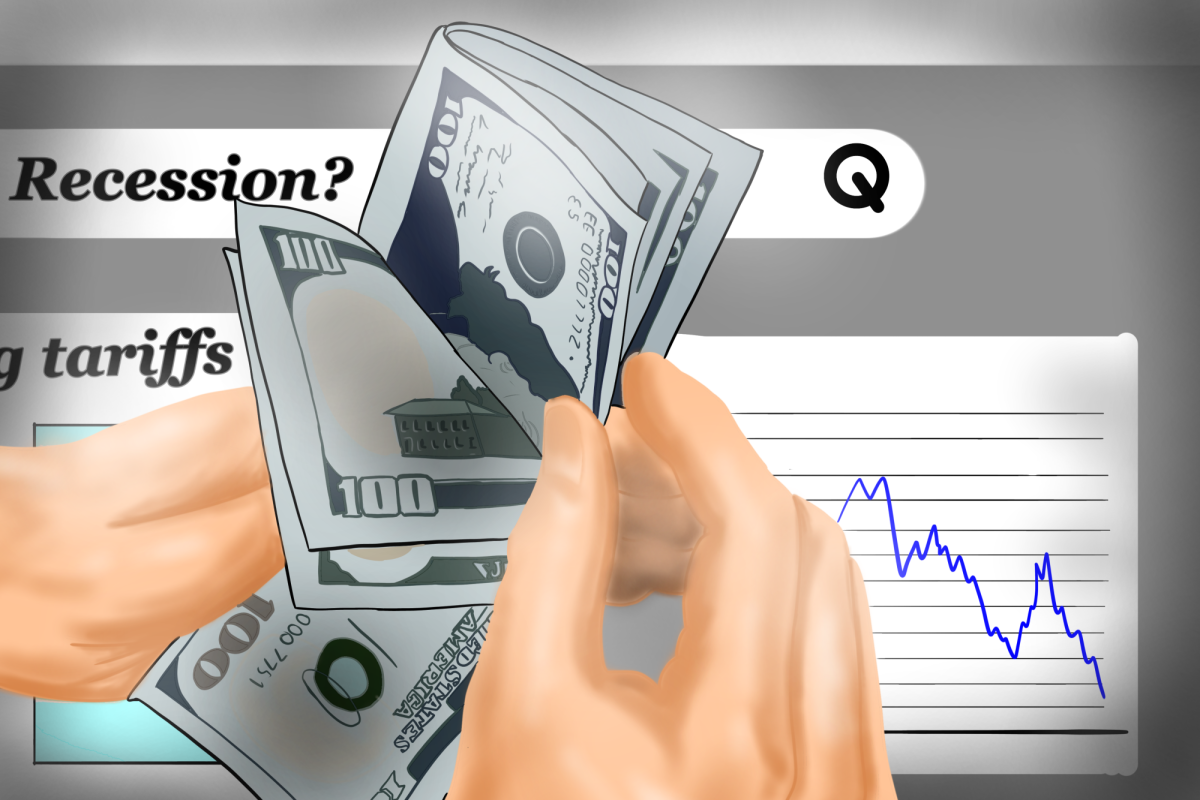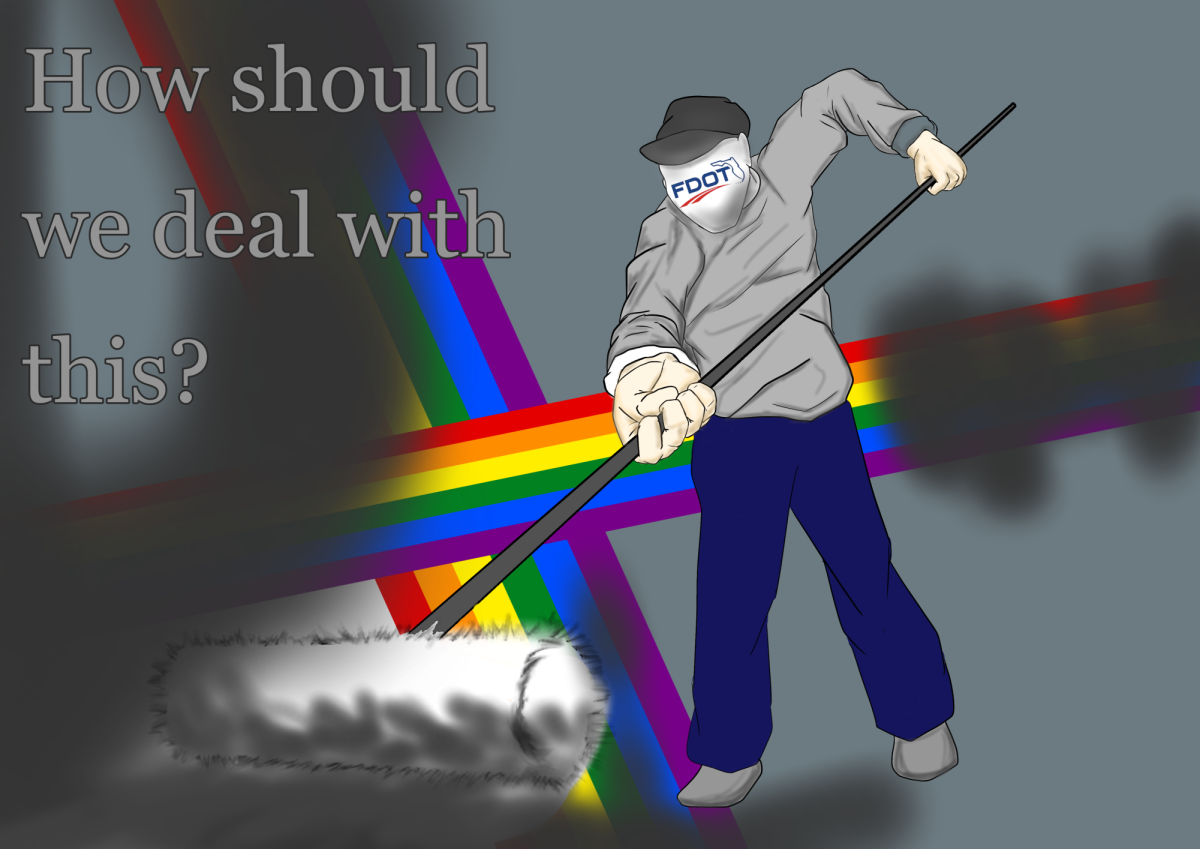When the bell rings after seventh period on Sept. 10, you walk down the stairs of the B-building and open Instagram by second nature. Instinctively, your thumb hits the sunset gradient of your friend’s story.
Charlie Kirk is dead.
In the last two minutes of passing period, the right-wing political activist and Trump supporter who co-founded Turning Point USA was shot at a campus event in Utah Valley University. Five minutes before the end of lunch, Kirk was pronounced dead.
News of his death is on one story, then another, then seven more in a row. You would think he died many times over with the way his face reflects off your screen swipe after swipe. When you check Instagram messages, you cannot help but glance at your friends’ notes. Scrolling across, the notes form a spectrum of reactions: a dove in flight, the song “No One Mourns the Wicked” and comments like “Is the bullet okay?”
People will say these jokes are just jokes: it really isn’t that deep. Some even credit karma.
Yet, choosing to turn a blind eye to gun violence is choosing to ignore the consequences of desensitization. It is turning away from the empathy that makes us human. Nevertheless, when we discuss Kirk’s legacy, we tread a thin line between glorifying his life and remembering his bigoted views. Just because Kirk was a victim in the end does not mean his actions when he was alive should be overlooked.
It is important to remember two things. First, society must maintain this moral belief: violence must neither be celebrated nor dismissed. Second, one’s death should not rewrite their life choices.
The current discourse surrounding gun violence stems from its roots in American identity, education and upbringing.
K-12 School Shooting Database shows that instances where guns were brandished in schools increased exponentially since 1997. In the 2021–2022 school year, shootings reached four times the year before. In total, the United States has 57 times as many school shootings as any other major industrialized nation.
Our generation — Generation Z — is the first to grow up in an era of lockdown drills, which were only enacted following the 1999 Columbine High School shooting.
At the same time, political violence is on the rise. TIME Magazine points out that threat cases related to lawmakers have increased to 14,000 this year — 9,000 more than 2024. These attacks “emanated from across the political spectrum,” according to Michael Jensen, the research director at National Consortium for the Study of Terrorism and Responses to Terrorism (START) at University of Maryland.
The internet plays no small part in this escalation. Online forums in dark corners of the internet are home to extremist groups that spew dangerous ideologies, motivating many shooters — possibly including Kirk’s — to take action. In this way, the radicalization of polarized views is rapidly accelerated. When algorithms are inherently built to satisfy users with the information they wish to believe, the internet can feed the flames of violence, fueling more online hate speech and creating an unending cycle.
We are the first to witness all of this from childhood.
The consequence of this desensitization is apparent in the public’s reaction not only to Kirk’s assassination, but to the slew of politically motivated incidents of violence in recent years. From the Jan. 6 United States Capitol attack to the attempted assassination of President Donald Trump, each event has been treated with increasing levity and then buried as a new occurrence takes the spotlight.
Nowhere is the young generation’s celebration of violence more evident than with the shooting of United Health Executive Brian Thompson, allegedly by 26 year old Luigi Mangione. According to a poll by Emerson College, 41% of voters ages 18 to 29 consider Thompson’s murder to be acceptable. In the weeks that followed Mangione’s arrest, the internet flooded with fan art, thirst traps and memes about him. When United Health posted an announcement on Facebook voicing their sadness at Thompson’s death and their condolences for his family, more than 127,000 users reacted with a laughing crying emoji.
Even if the healthcare system has done injustice to millions, the means Mangione allegedly tried to fix it with are inexcusable. If we applaud one case of gun violence, how many more do we allow? Where do we draw the line? Those like Mangione are setting the stage for others to act under the belief that they are vigilante heroes worthy of the worship Mangione received, paving the way toward a slippery slope.
We cannot be selectively sympathetic, cannot pick and choose when gun violence is acceptable. It is a logical fallacy to condemn gun violence while justifying Kirk or Thompson’s assassination, even if you disagree with the victims’ actions. Though the young generation may be inured to violence, it is crucial for us to evaluate what our actions, especially online statements, are condoning. Bottom line: violence is not comedic.
Nevertheless, Kirk’s death heightened the devotion of his followers; he has been turned into somewhat of a martyr.
Kirk’s legacy has been glorified since his death. President Trump ordered the flag to be lowered at half-mast nationwide in honor of Kirk. Countless candlelight vigils have been held as tribute to his life’s work. Troy Nehls, Texas’s 22nd congressional district representative, even declared that, “If Charlie Kirk lived in biblical times, he’d have been the 13th disciple.” In our local community, the Rancho Santa Fe Invita Cafe commemorated Kirk by handing out stickers and donating 100% of profits from Sept 13 to Turning Point USA.
When Kirk’s life was silenced by a gunshot, what also seemed to be forgotten was his history of inflammatory speech. On “The Charlie Kirk Show,” he suggested that “Joe Biden [should] be put in prison and/or given the death penalty for his crimes against America” and “of course, we should have church and state mixed together.” He advocated for children to watch public executions, then asked “why is this even a question?” Kirk told his podcast listeners that “the rapists, the thugs, the murderers, fighting-age males, they’re coming from across the world, from China, from Russia, from Middle Eastern countries.” At a 2023 Turning Point USA convention, Kirk said that “it’s worth it to have a cost of, unfortunately, some gun deaths every single year so that we can have the Second Amendment” after three schoolchildren died in a mass shooting at a Nashville elementary school.
It is crucial for us to separate Kirk’s brutal death with his discriminatory ideologies. Just because he is silenced, does not mean his words are. Remembering Kirk as a saint is sanitizing his polarizing beliefs that promote violence, hate and division.
But to say that Kirk deserved death is confusing moral accountability with personal tragedy. In other words, condemning someone’s actions and words are valid, but validating his death is erasing the very empathy critics promote. Hounding Kirk does not undo the damage done by his ideas, nor does it decrease hostility. It should be normal to be horrified by assassination while acknowledging the inflammatory, prejudiced ideas Kirk supported.
Today, Americans are fortunate to live in a nation where free speech is legal. Resorting to violence as a solution to silence free speech — or in any scenario — should be criticized for its means to silence individuals and rob them of their first amendment rights. Disagreements must be dealt with civility, order and law.
In the face of extreme political dissensions, we must reevaluate our guiding principles if we wish to progress. By turning a blind eye or praising it in some cases, we are being morally inconsistent and laying the groundwork for systematic violence. That being said, assassination does not exempt Kirk from moral accountability; his hate speech and death at the hands of gun violence must be separately addressed.
We must neither support Kirk’s death, nor memorialize his life.








